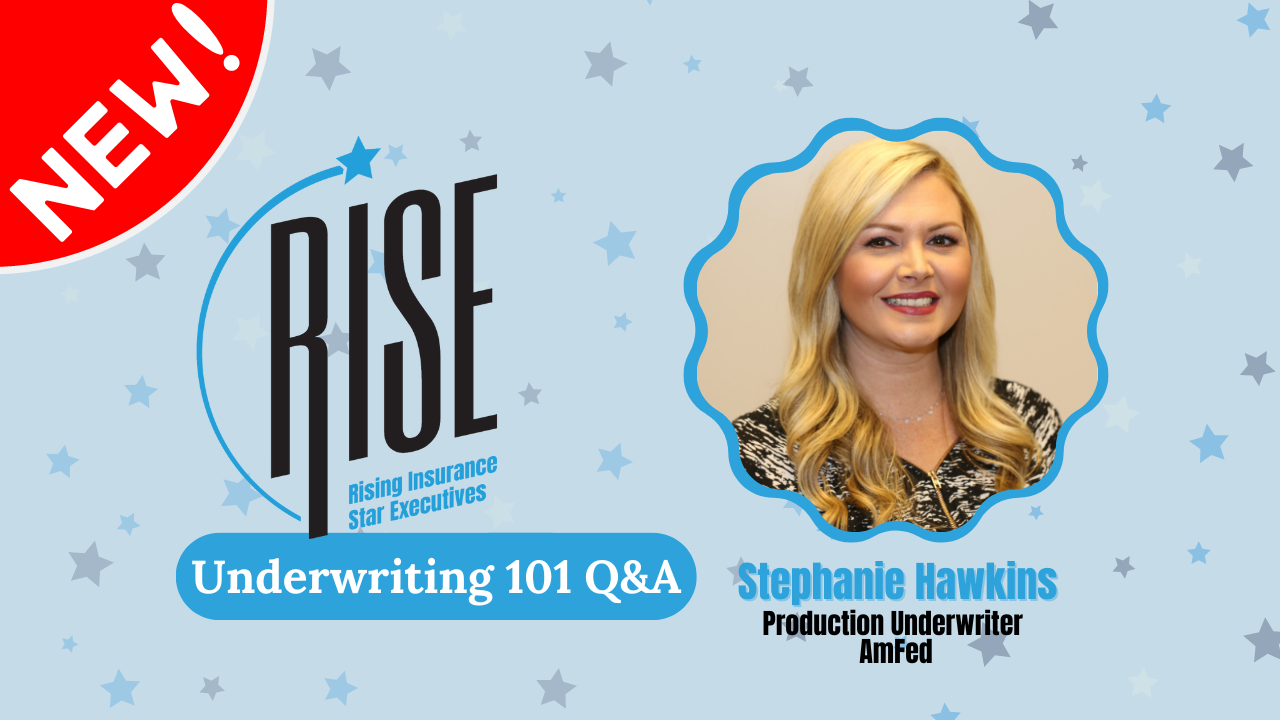Underwriting 101 Q&A
By: Stephanie Hawkins – Production Underwriter, AmFed

Q: What is underwriting?
A: In short, underwriting is a thorough analysis of a risk and the type(s) of exposure(s) connected with that risk for insurance pricing purposes.
Q: What role do underwriters play in insurance? Why are they important?
A: Underwriters play a very important role in insurance as we are the first ones to set eyes on incoming risks. It is our duty to establish and nurture our working relationships with our agents to maintain a steady flow of incoming submissions and determine if that business fits our company’s business portfolio and risk appetite. It is also our role to provide the utmost service to our insureds over the lifecycle of an account – from processing endorsements in a timely manner and assisting with loss control coordination to bi-annual stewardship meetings and day-to-day policy servicing.
Q: What are the steps in the underwriting process?
A: For a typical account, the underwriter must review the risk, its historical loss history, projected losses, risk management capabilities and ability to comply with recommendations, financials, and so much more. It’s like getting a puzzle and putting all the pieces together without having the box/picture to reference – but that is what I love about the underwriting process! You will be equipped with countless tools to assist in the process, and again, cultivating great working relationships with your agents is key to keep the line of communication open and to obtain additional information to further review each risk.
Q: How does an underwriter decide whether to approve an application or deny?
A: Whether an application is ultimately approved or denied is generally determined by the insurance carrier’s appetite. If you have a solid knowledge of the types of risks that your company will and will not take on, that part comes easily.
Q: How do underwriters classify risk? How do underwriters determine appetite?
A: We can usually classify and determine if a risk is a fit for our company fairly quickly by looking at class codes, historical losses and how well it matches up with our company’s established appetite. However, I have learned in this industry that appetite can shift from time to time based on the individual risk.
Q: What experience did you have prior to becoming an underwriter?
A: I have now been in the workers’ compensation industry for 15 years! Prior to my role in workers’ compensation underwriting, I worked for a workers’ compensation insurance defense law firm doing legal secretarial work and marketing coordination.
Q: How did you get into underwriting?
A: I was very fortunate that a local carrier with an amazing reputation, AmFed (now an Ascot Group company), had an opening in their underwriting department. I did not have a day of experience in underwriting prior to starting at AmFed, but over the last 7 years, I have learned a lot and loved every single day of my job. I was driven to learn and blessed with supervisors who had the extensive knowledge and patience to provide me with the tools I needed to excel.










Leave a Reply
Want to join the discussion?Feel free to contribute!